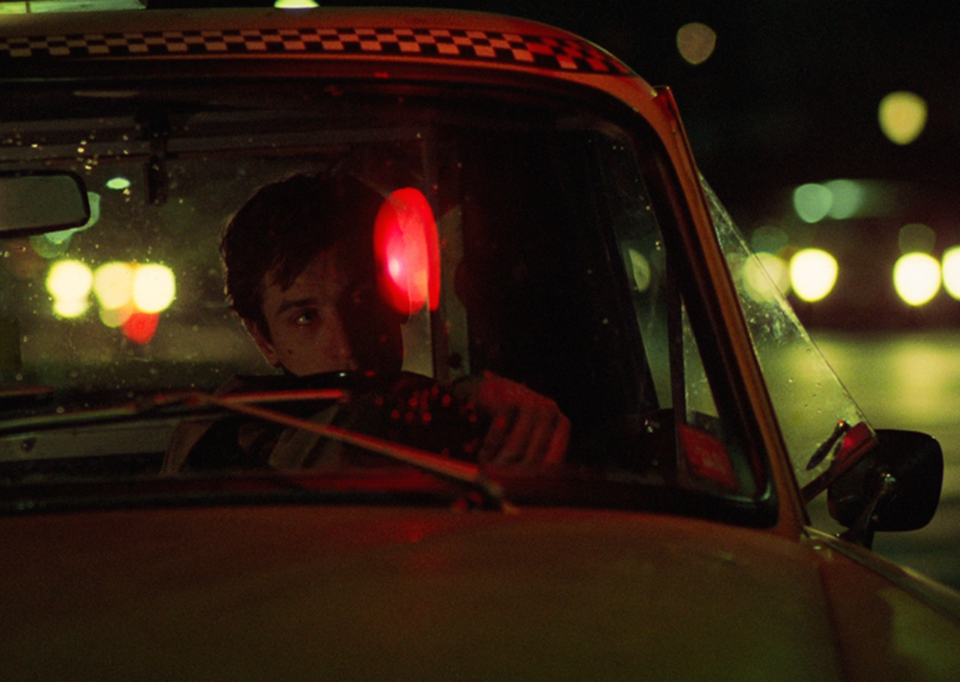|
curator's note This week our writers return to MUBIVIEWS with the classic American vigilante film TAXI DRIVER (Martin Scorsese 1976). As a regular favourite on lists of the greatest film of all time, what will our writers make of this critically acclaimed neo-noir A STUDY IN YELLOW George Lee At its heart TAXI DRIVER (Martin Scorsese 1976) is a character study. The film delves deep into the twisted and confused mind of Travis Bickle (Robert De Niro), a Vietnam veteran forced to stalk the streets of New York in his taxi cab. The film is nearly completely shown through Travis’ unreliable point-of-view, spending a significant amount of time depicting the less than glamorous side of New York. This works as a metaphor, demonstrating the truly seedy aspects of Travis’s warped mind. It is evident that Travis is traumatised from his time in Vietnam but instead of addressing this directly, his trauma manifests itself in a chaotic web of self-sabotage and brutal violence. He sees the biggest hindrance to his happiness is the state of New York itself. Although he constantly complains about the “scumminess” of New York, he is contradictory in nearly all his actions. He takes his date to a porn theatre and drives around prostitutes in his cab. This demonstrates his truly fractured mental state, that while he is externalising his anger at the state of New York it is really himself he is angry with. It is at this point in the film where Travis, seeing no other option, turns to violence. He takes up arms against his targets, the people he sees as ruining New York: the politicians and the pimps. Perhaps the most accurate scene that illustrates his character is not the deranged monologue into the mirror or the bloody slaughter but the precariously balanced television. As Travis tilts it further and further he knows it will eventually fall off and much like his own fragile sanity, it inevitability smashes. Every day this week a different writer will provide their perspective on our MUBIVIEWS film and each post will be open to comments from our readers. Watch TAXI DRIVER on mubi.com until 4 July 2017 and join the discussion!
1 Comment
Steven Fegan
21/6/2017 02:30:41 pm
Insightful analysis, I especially liked the description regarding the television scene. While it may not be as iconic as the mirror scene, it establishes a more subtle and quieter representation of Travis's mindset, which can often be more effective.
Reply
Your comment will be posted after it is approved.
Leave a Reply. |
MUBIVIEWSOne MUBI film, five perspectives, endless possibilities. Archives
July 2017
Categories
All
|



 RSS Feed
RSS Feed
